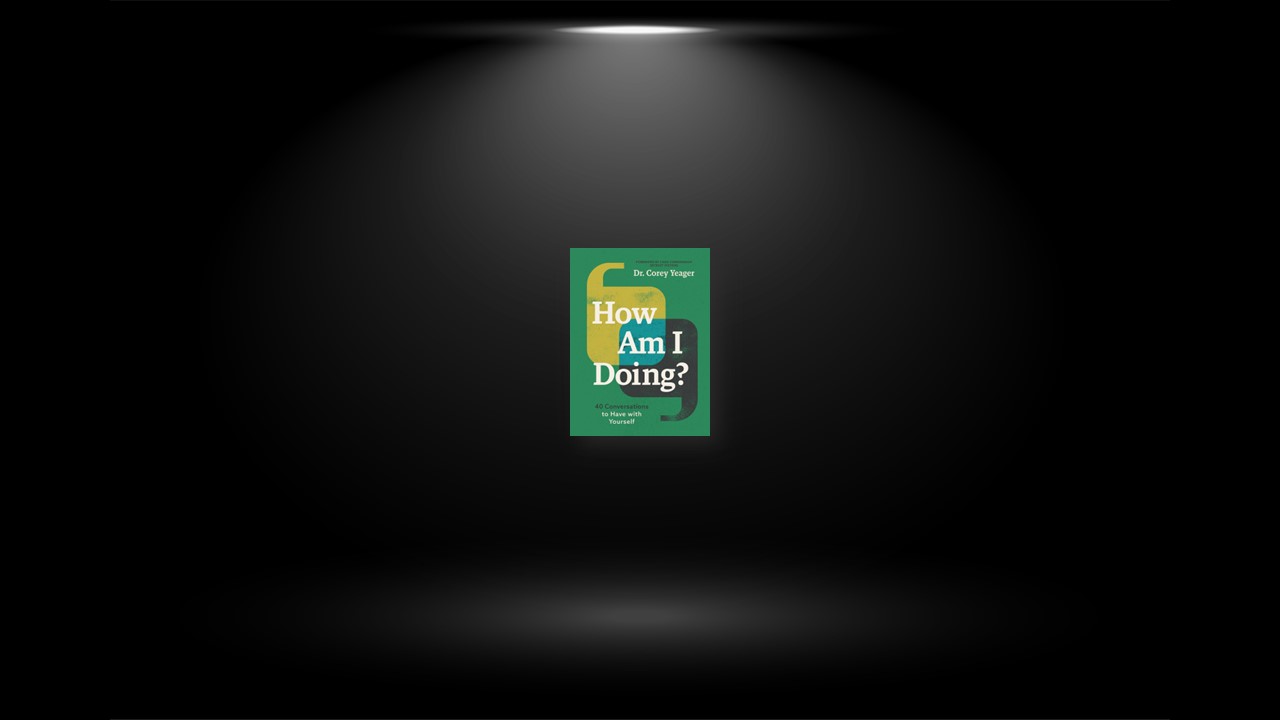- Who is the most important person in your life?
When you think of the most important person in your life, you might think of one of the people you’ve committed your life to. Maybe your spouse or a child or a longtime friend. You may think of a parent or grandparent who sacrificed so much to help you grow into who you are today. Or maybe you think of one of the loyal, hardworking people who depend on you at work.
But if a family member, friend, or colleague is the most important person in your life, and everything you do is for them, then where do you come in? Are you the second most important person? Third, fourth, fifth in line?
You may not realize it, but you are the most important person in your life. While you might think prioritizing yourself is selfish or arrogant, it’s not. In fact, it’s essential to your well-being and foundational to every other question in this book. Facing up to challenges, becoming intentional with your day, making better decisions, improving relationships—you can’t tackle any of those goals until you recognize the position you’re here to play.
- What are your wildest dreams?
Maybe you’re considering what you want out of life, and your desires seem as oppositional as being a Mets fan and a Yankees fan at the same time. It takes a real dreamer to consider how to bring those desires together, but it’s not impossible if you know what you’re doing. Keep following your passions—in the simple, daily pursuits and in the riskier, bigger moves—and see if that dream starts to become more of a reality. Being the fastest runner on earth? Impossible. Finding an unusual new path? A wild dream within reach.
Step into the playground. Wildest means there are no naysayers. Wildest means there’s no one pointing at the clock saying you don’t have enough time. Wildest means you dare to imagine what the future can possibly hold. Later you can bring the dream down to an achievable level. Later you set macro goals and micro goals. Later you can ask, How the hell could I ever achieve that?
- Who knows you best?
Only one person does. The only person who really knows all the pieces of you is you.
It means that when big questions and decisions arise, you probably already have the answers. It’s like insider trading—only legal. Think about it. When you ask someone for advice, don’t you know the answer you want to hear most of the time? Should I take this new job or stick with the one I have? Should I study medicine or engineering? Should I move to the East Coast to keep this relationship? Should I stay home with the baby or put her in daycare? Should I ask for a raise? We often look to others, seeking confirmation of what we already know.
This realization leads to a question: Do you trust yourself? The answer is pretty simple. If you don’t, it’s likely because you don’t have experience. And society hasn’t told you to trust yourself. Instead, it’s told you that there’s always someone out there with all the answers. The expert, the guru, the coach, the author, the professor, the therapist, the guy giving the TED Talk. Instead of trusting yourself, you learn to trust others to be your mirror. That becomes your default.
- Who is the author of your life story?
We all have a story to write. Too often we allow others to write our story. We follow the plot outline they create for us. You’re going to be a doctor since you’re good with your hands. You’re never going to settle down. You’d be a great lawyer. You’re tall; you must be a basketball player. We hear what others think our story should be, and we follow the dreams they set for us. Often these messages come from well-intentioned parents and older relatives who are holding on to their unlived dreams.
Our first step here, as in everything we’re practicing, is to allow awareness. You need to have a sense of who you are and where you’re going. What makes you smile? Ask yourself why. What’s a memory from childhood that makes you feel alive? Ask yourself why. What scares you about the next five years? Ask yourself why.
This one word, why, is the beginning of knowing yourself, and knowing yourself is the beginning of your authorship of your life. Eventually you can exchange that word why and start asking how. But first seek clarity on what led you to where you are, and soon you can pick up the pen and write from there.
- Do you have an encouraging inner voice?
Since you’re the most important person in your life, it follows that your voice is going to have a powerful influence. Most of us underestimate that power. We have to start tuning in more deeply to that voice. What is yours saying? Is it encouraging? Defeatist? Quick to blame? Quick to make you feel ashamed? The more positive the talk, the more positive your day. It’s the difference between a coach who is quick to criticize and point out flaws and one whose words lift you up. The human body has approximately 40 trillion cells. Every time you say something to yourself, positive or negative, you are directing all 40 trillion of those cells to uphold that thought.
- Who is on your supreme court?
You can call the group what you will—your team, your cabinet, your posse. Doesn’t matter, just make sure you have one. These are the three to five people who you can go to for advice and wisdom on big life decisions. They tell you the truth based on what they know about you and what they’ve heard you say.
These truth tellers don’t need access to some ultimate truth. They just have to be willing to tell the truth as they see it based on what they know about you. They don’t have to be the people you like the best. One might be a friend you’ve known since first grade; another could be a coworker you met in your fifties when you had a better idea of who you were and where you wanted to go.
Your truth tellers don’t have to agree with your worldview, but they do need to know you. In fact, often the best advice a truth teller can give is to remind you to take your own advice. You’re not looking for people to let you vent or be your cheerleading squad. You have friends for that.
- Do you allow yourself to imagine what your future could be?
As a child your imagination was home. Pretend play was your language. But when you were barely a decade into the world, society started telling you, You have to start thinking about high school. Your grades are going to count now. Time to buck up. And from then on the playground folded in on itself like a vortex, leaving in its place a checklist. Life became about accomplishments, career, a steady relationship—always ushering in that next stage of life. You were taught that imagination was something to say goodbye to.
Stepping back into the playground may require a bit of patience at first. We can’t force things to happen there. It has to evolve naturally. This is tough, because a lot of us are used to taking direction, receiving an agenda, and plowing ahead.
The playground is an intuitive space. Following your imagination requires trusting what you sense to be true, not calculating next steps through external research or data. You’ll have to rely on your internal guide here. If you haven’t spent a lot of time listening, it will take practice to understand the language they speak. But if you keep showing up to the playground, trust that the childhood version of you will eventually start showing up too. And, paradoxically, that childhood version is the one who will help you imagine the future.
- What is your genius?
When you look at the origin of the word genius, you’ll see that at first it wasn’t associated with an unusual ability. It just referred to an innate ability. Here’s one of the definitions of genius from Merriam-Webster: “a peculiar, distinctive, or identifying character or spirit.”
We all have an identifying character or spirit. Maybe yours is finding beauty in nature. Maybe it’s compassion for the underdog. Maybe you have an uncanny ability to be curious. Maybe you remember songs after hearing them only one time. We all have a genius based in the original meaning of the word—a distinctive trait. But we all have genius in the current understanding of the word as well—something to offer the world that no one else can offer.
- How much time do you spend looking in the mirror?
When you’re engaged with the mirror, you can test out your value system, and try on different choices and imagine how they play out. What does a choice say about who you are and what you value? The mirror is a safe place to improvise. It’s a chance to have a conversation with yourself about who you want to be and to try inhabiting that new role.
If you recoil at the idea of facing yourself, think about why that might be. Why do you avoid the mirror? Many times, when you get in front of the mirror, you’re going to be challenged with who you are and who you want to be. Sometimes there’s a world of difference between those, and this can be uncomfortable. You might not like what the person in the mirror tells you. But the verse from the book of John says, “The truth will set you free.” You have to get to the truth first before you can make a change. Try it—lean in, be curious, ask one question after another.
Embrace the tension, because this is where you’re going to change. As you continually show up to do this reflective work, your inner self will become more congruent with that person in the mirror. You’ll start to feel the two entities almost blend into one being. The mirror is the gateway to inner harmony.
- Where are your sacred spaces?
A sacred place doesn’t have to be static or singular. For some people it’s sitting on a train watching the landscape go by. For others it’s being at a concert, listening to live guitar. You might associate a sacred space with a spiritual place or a location in nature. It might be where you can be at peace and connected to the world outside yourself. Certain majestic spaces are almost sacred by nature. The ocean. The mountains. The forest. These may remind you that the world is bigger than your daily worries, and give you hope that it’s possible to change the path you’re on. But you don’t need something as grand as the redwoods to make you feel connected to life in a more meaningful way. Maybe there’s a fountain in your neighborhood that reminds you that the world is fluid, always in motion, full of hope. Maybe you have a special tree in your yard, providing shelter and a sense of rootedness.


